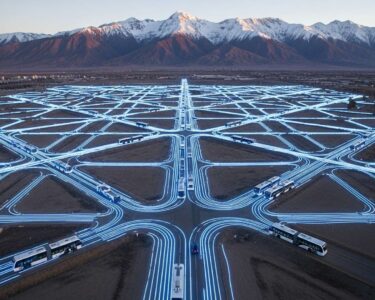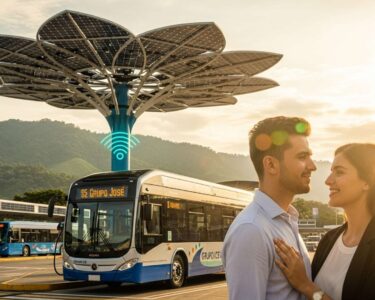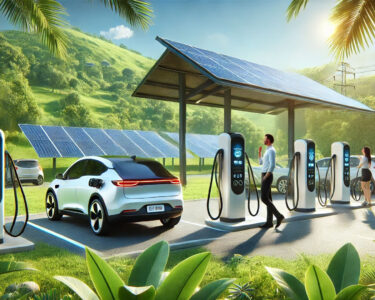Puntarenas, Costa Rica — Costa Rica, renowned for its commitment to environmental sustainability and eco-tourism, is making significant strides in the realm of electric mobility. The country has recently recorded a substantial increase in electric vehicle (EV) imports, cementing its position as a leader in the adoption of green transportation solutions in Central America.
In the first quarter of 2024 alone, Costa Rica imported 3,500 electric vehicles, representing a remarkable 14% of the total vehicle imports during this period. This surge follows the impressive figure of 7,000 EVs imported throughout 2023.
The cumulative number of electric vehicles on Costa Rican roads reached 15,588 by the end of May 2024, showcasing the nation’s rapid transition to cleaner transportation alternatives.
The growth of electric vehicles is driven by tax exemptions, lower operational costs, and increased model availability, making them accessible beyond luxury categories. This marks a pivotal shift towards sustainable mobility
Carlos Aguilar, Executive Director of the Asociación de Importadores de Vehículos y Maquinaria (AIVEMA)
The Costa Rican government has played a pivotal role in fostering this growth through a series of incentives and policies aimed at reducing carbon emissions and promoting renewable energy. The elimination of import taxes on electric vehicles, coupled with subsidies for charging infrastructure, has made EVs more affordable and appealing to the average consumer.
Costa Rica’s ambitious environmental policies are aligned with its goal of becoming a carbon-neutral country by 2050. The country’s robust renewable energy infrastructure, primarily sourced from hydropower, wind, and solar energy, further supports the seamless integration of electric vehicles into its transportation network.
Costa Rica’s commitment to electric mobility extends beyond merely increasing the number of EVs on its roads. The country is also becoming an attractive destination for companies looking to test and refine their advanced automotive technologies. Its compact size and diverse terrain provide an ideal environment for testing EV performance, battery efficiency, and autonomous driving algorithms.
Several international companies have recognized Costa Rica’s potential as a real-world laboratory for innovation. The country’s stable political climate, supportive regulatory environment, and high levels of education make it an ideal location for deploying and testing new technologies. This unique combination of factors positions Costa Rica as a hub for electric vehicle innovation and a leader in the global transition to sustainable transportation.
The rise in electric vehicle imports is not only a win for the environment but also a significant boost to the local economy. The increased demand for EVs has spurred growth in related industries, including charging infrastructure, maintenance services, and component manufacturing. This growth is creating new job opportunities and driving economic development in various sectors.
Moreover, the adoption of electric vehicles contributes to improved air quality and public health. By reducing reliance on fossil fuels, Costa Rica is mitigating the adverse effects of air pollution, which is particularly beneficial for urban areas with high traffic density.
Looking ahead, Costa Rica’s electric vehicle market is poised for continued growth. The government’s ongoing support, coupled with rising consumer awareness and technological advancements, suggests that the adoption rate of EVs will only accelerate. However, several challenges remain, including the need for a more extensive charging network and continued efforts to make EVs affordable for a broader segment of the population.
Costa Rica’s rapid adoption of electric vehicles highlights the country’s dedication to sustainability and innovation. As a paradise for both eco-tourists and technology companies, Costa Rica is setting a precedent for other nations in the region and beyond. The country’s proactive approach to fostering green transportation solutions is a testament to its commitment to a cleaner, more sustainable future.
For further information, visit aivemacr.com
About AIVEMA:
The Asociación de Importadores de Vehículos y Maquinaria (AIVEMA) is dedicated to representing the interests of vehicle and machinery importers in Costa Rica. AIVEMA promotes sustainable mobility solutions and advances the automotive industry in alignment with environmental goals. Through advocacy, education, and innovation, AIVEMA plays a crucial role in shaping the future of transportation in Costa Rica.









